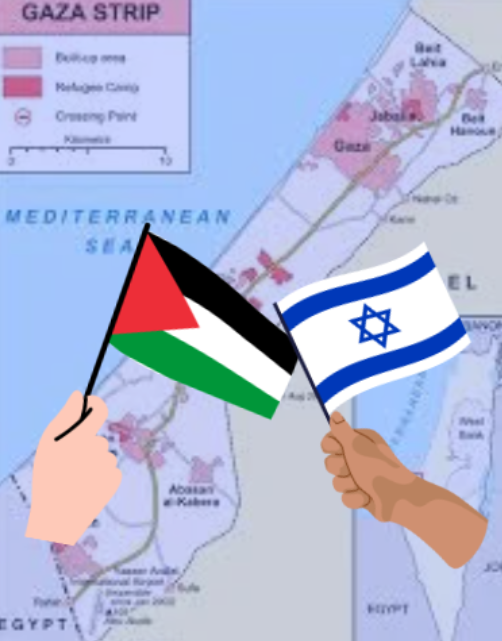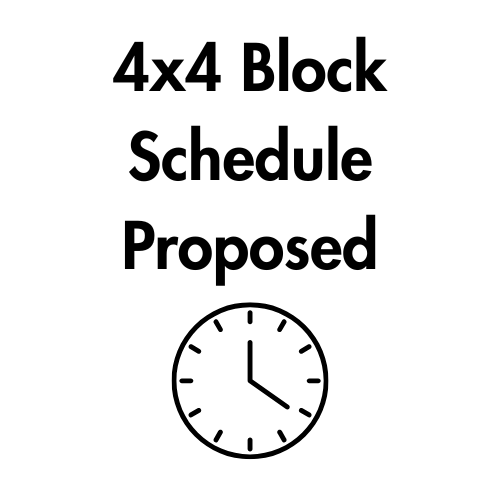On Oct. 7, 2023, the militant Palestinian group Hamas launched a surprise attack in Southern Israel on the Gaza strip, killing over 1,000 Israeli citizens and taking over 200 hostage. However, this isn’t the first conflict between Israeli and Palestinian forces. In fact, certain issues can be traced back to over 2,000 years ago. Many of these issues include division between ethnic, cultural, and religious identities as well as geopolitical disagreements (political issues that arise due to geographic factors, such as territorial disputes).
According to world history and political science teacher, Mr. Chris Gallagher, both Israelis and Palestinians believe that they have a right to the land in modern-day Israel.
“Jewish people had a state of Israel back in ancient times, which was eventually conquered by other people. Not only did they have a political state there, but they believed it was holy land given by their God for following the Jewish Covenant,” said Gallagher. “The Palestinians have been living on that land for a very long time… The Palestinian people in particular believe that the land should be theirs, since after the Ottoman Empire broke up in the aftermath of World War I, Palestine became a mandate state that the British promised would have self-control down the line, which was never given.”
Shortly after World War I, the British government created the Balfour declaration, which encouraged Jewish immigration to this land; this immigration only increased after the Holocaust, as many Jewish people wanted a state that was just for them to avoid discrimination and violence in other territories. The ideology of Zionism, which was a nationalist movement that encouraged the idea of Jewish immigration to their homeland, fueled Jewish immigration as well.
According to World History teacher, Ms. Sarah Mast, in 1948 the United Nations created the state of Israel in between modern-day Egypt and Jordan. This caused a lot of retaliation from Pale
Palestinians and other Arab states, but in the end, Israel was recognized as an official state and Palestine was not. Palestine was, however, given self-rule of the Gaza strip by the Israeli government.
Throughout the years, Palestine has been under control of various political groups that all have varying qualities of nationalism and government control. Hamas and the Palestinian Liberation Organization (PLO) have the most political control at the moment.
“The PLO has become a relatively peaceful political organization, but Hamas is a militant organization. Hamas considered the PLO to be too secular and compromise-minded, and has a stated goal of Israel’s destruction. The PLO views Hamas a violent, extremist group,” said Mast.
Different groups of people have very different viewpoints on whether or not Hamas is an extremist group.
“What you consider Hamas depends on what side of the fence you are sitting on. Some people will consider them freedom fighters, and others will view them as terrorists. They are a more radical group, and by that I just mean they take more radical measures, since they often use violence to achieve their goals- such as taking Israeli citizens hostage,” said Gallagher.
The Israeli government has made it their goal to eradicate Hamas from the Gaza Strip, as they see it as a national threat to the security of the Israeli state and Israeli citizens. They believe that Hamas nationalists have been hiding amongst Palestinian civilians, so the Israeli government resorted to targeting civilian heavy areas, which some people view as genocide.
Since the U.S. is allies with Israel, it has provided a lot of aid to their war efforts. This is due to numerous influential factors that have been in effect since the creation of the Israeli state in the 1950s.
“There’s a cultural connection between a largely christian state and a largely Jewish state. Additionally, the U.S. was also involved in negotiations that created Israel and promoted Israeli immigration,” said Gallagher. “Politically, they have always been an ally in the Middle East amongst states that aren’t as friendly to the U.S.”
U.S. support of Israel had led to a lot of protest amongst U.S. citizens, especially with younger generations. This is largely influenced by social media, with footage of the war and predominantly pro-Palestine perspectives by younger people. Additionally, this has caused protest from younger democrats against President Joe Biden in the presidential race.
Junior Venus Slagle has been very supportive of Palestine since they learned of the conflict.
“My perspective on this conflict is that this is a genocide not only in Gaza, but on Palestine in general… I have come to this conclusion not only by reading the news, but also by listening to Palestinian stories on social media platforms,” said Slagle. “The U.S. should be signing for a permanent ceasefire to let Palestinians live in peace.”
Senior Steven Nguyen has done a lot of research on the issue and has talked to many people that were impacted by it.
“I understand the suffering of Palestinians and the need for support from foreign countries, because it wasn’t long ago that my family immigrated from Vietnam due to the Vietnam war,” said Nguyen.
Nguyen also has a very broad understanding of issues that can arise online with misleading information, due to AI and false information.
The Israeli-Palestinian conflict is a very controversial war, due to the varying cultural and ethnic differences, and the infinite amount of perspectives on it; especially with its long history of conflicts.







